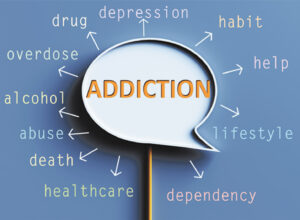April’s Alcohol Awareness Month Brings Focus to Health and Support
 April marks National Alcohol Awareness Month, a time dedicated to increasing public understanding about alcohol related issues and reducing the stigma that often surrounds alcohol use disorder. Established in 1987 by the National Council on Alcoholism and Drug Dependence (NCADD), this observance has evolved into a crucial annual campaign that encourages communities to reflect on drinking habits and promotes resources for those seeking recovery.
April marks National Alcohol Awareness Month, a time dedicated to increasing public understanding about alcohol related issues and reducing the stigma that often surrounds alcohol use disorder. Established in 1987 by the National Council on Alcoholism and Drug Dependence (NCADD), this observance has evolved into a crucial annual campaign that encourages communities to reflect on drinking habits and promotes resources for those seeking recovery.
The impact of alcohol misuse extends far beyond individual health concerns. According to recent data, excessive alcohol consumption contributes to approximately 95,000 deaths annually in the United States alone. These statistics represent not just numbers, but families disrupted, careers derailed, and potential unfulfilled.
“Alcohol awareness isn’t just about identifying problematic drinking,” explains Dr. Sarah Martinez, addiction specialist at Harbor Recovery Center. “It’s about understanding how alcohol affects our bodies, recognizing warning signs, and knowing that effective treatment options exist for those who need support.”
The pandemic years brought significant changes to drinking patterns nationwide. Many people reported increased alcohol consumption during isolation periods, with studies showing a 41% rise in heavy drinking among women. As communities continue recovering from these disruptions, Alcohol Awareness Month offers a timely opportunity to reassess relationships with alcohol.
This year’s campaign emphasizes several key messages. First, understanding what constitutes moderate drinking—defined by health authorities as up to one drink daily for women and up to two for men—helps individuals make informed choices. Second, recognizing risk factors for alcohol use disorder, including family history, early-onset drinking, and mental health conditions, enables proactive prevention. Finally, knowing that recovery is possible through various treatment approaches offers hope to those struggling.
Community involvement remains central to the month’s success. Many organizations host alcohol-free activities throughout April, demonstrating that social connection doesn’t require drinking. Schools implement educational programs addressing underage drinking prevention, while healthcare providers often offer free screenings and resources during this period.
“We see Alcohol Awareness Month as a catalyst for year-round conversation,” says Michael Chen, coordinator for the Sober Living Coalition. “The discussions started in April frequently lead to sustained support networks that continue long after the month ends.”
For individuals concerned about their own drinking patterns, April presents an ideal time to explore options. Many choose to participate in challenges like “Dry April,” temporarily abstaining from alcohol to evaluate its role in their lives. Others may seek professional assessment through their healthcare providers or connect with support groups offering peer understanding.
“What makes recovery possible for many people is knowing they’re not alone,” notes recovery advocate Jamal Washington. “When communities openly discuss alcohol issues during awareness campaigns, it reduces isolation and shows pathways forward.”
The healthcare community emphasizes that seeking help represents strength, not weakness. Treatment approaches have diversified significantly in recent years, ranging from traditional 12-step programs to medication-assisted treatment, cognitive behavioral therapy, and holistic approaches addressing underlying factors.
Digital resources have expanded access to support, with numerous apps and online communities providing assistance for those unable to attend in-person meetings or seeking anonymous help. These technological innovations complement traditional recovery methods, creating more entry points for healing.
As April unfolds, workplaces, religious organizations, and community centers nationwide will host workshops and information sessions highlighting available resources. Public health campaigns will appear across media platforms, sharing stories of recovery and challenging perceptions about alcohol dependency.
Ultimately, Alcohol Awareness Month serves as a reminder that conversations about drinking habits shouldn’t be confined to those already experiencing problems. By fostering open dialogue about alcohol’s effects on individuals and communities, April’s observance helps create healthier relationships with alcohol year-round.
Meet Jo Ortiz, PMHNP-BC
Bilingual in Spanish and English, Jo is one of the visionary leaders at Phoenix Behavioral Group. As a board-certified Psychiatric Mental Health Nurse Practitioner, Jo brings a wealth of expertise and a compassionate touch to the forefront of patient care. With unwavering dedication, she strives to empower individuals to reclaim their mental health and lead more fulfilling lives.
Jo is currently accepting the majority of insurances, give us a call to schedule an appointment.
239.259.1659
4949 Tamiami Trail North, Suite 202
Naples, FL 34103










